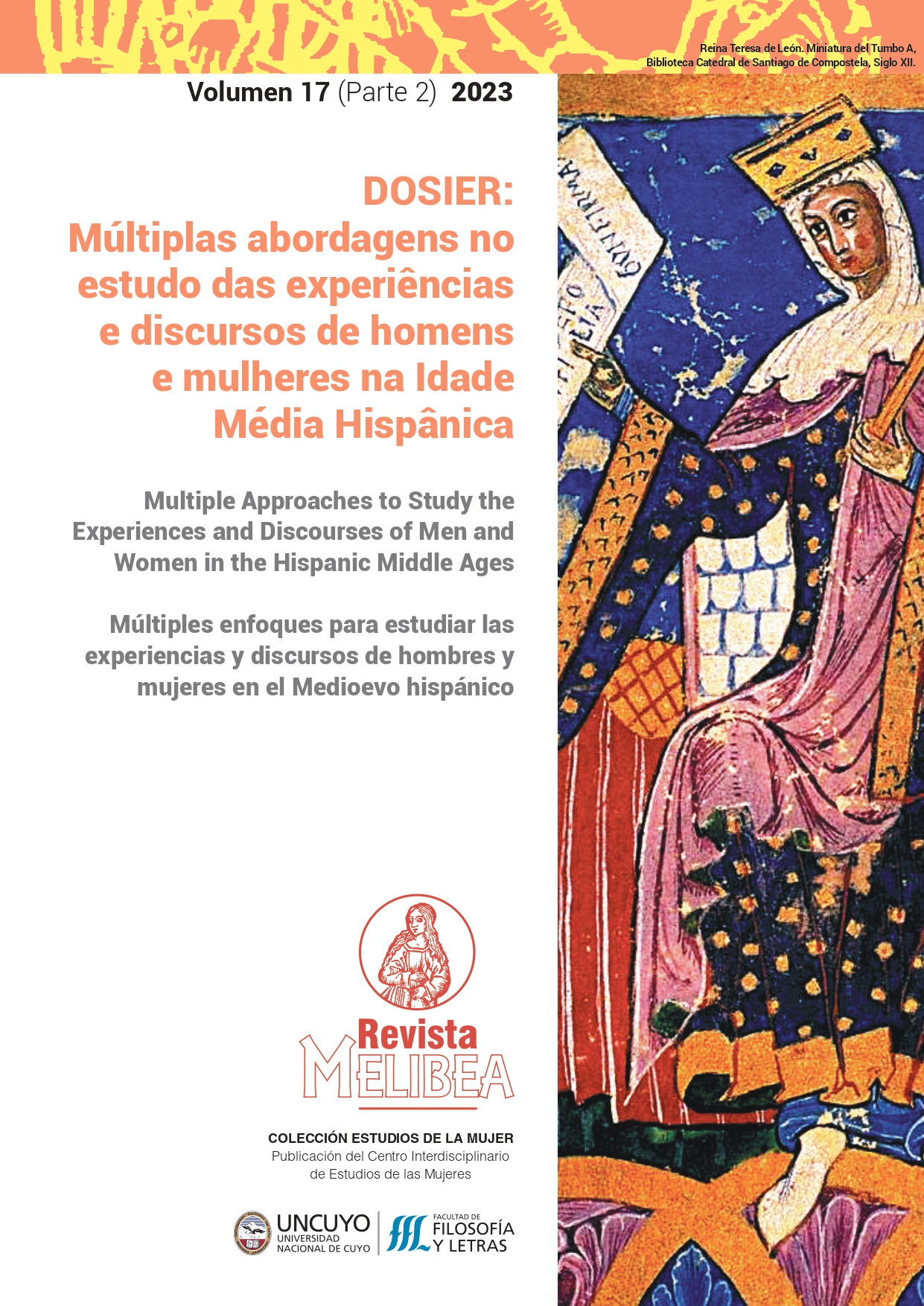The Franciscanism of Clare of Assisi:
A Comparative Analysis of the Sanctae Clarae Regula and Francis’s Regula Bullata (13th Century)
Keywords:
Rules, Franciscanism, Clare of Assisi, Francis of Assisi, LeadershipAbstract
The Franciscan movement developed from the 13th century onwards in the midst of a series of sociopolitical transformations and the emergence of new religious groups that had evangelical poverty at the core of their spirituality. Clare of Assisi, based on her ties to Francis, actively sought, throughout her life, to imple- ment the Franciscan proposal for female religious life. Over these years, it is pos- sible to see, through the records, Clare's role in constant debate with the papacy in order to meet the demands related to the institutionalization / normalization of the community of San Damiano in Assisi and still maintain what was essential in the Franciscan proposal. In this article, we propose a comparative analysis of Clare's and Francis' rules that received papal approval, with the aim of investigating Clare's role as a leader within the Franciscan movement.
References
ALBERZONI, Maria Pia (1998), “Papato e nuovi Ordini religiosi femminili”, ed. Il Papato duecen- tesco e gli Ordini mendicanti. 25º Convegno Internazionale Della Societa Internazionale Di Studi Francescani, celebrado em 1998 em Assis, Spoleto, Centro Italiano di Studi Sull’Alto Medioevo, 207-261.
BOBBIO, Norberto; MATTEUCCI, Nicola; PASQUINO, Gianfranco (eds., 1999), Dicionário de políti- ca, Brasília, Universidade de Brasília.
BOCCALI, Giovanni (ed.; 2013), Fonti clariane: documentazione antica su santa Chiara di Assisi. Scritti, biografie, testimonianze, testi liturgici e sermoni, Assisi, Porziuncola.
BORELLI, Laura; CIGNONI, Arianna Pecorini (2003), “Gregorio IX e il francescanesimo femminile nel territorio pisano-lucchese”, Boletino Storico Pisano, 63, 169-182.
CENTRO FRANCISCANO. Disponível na Internet via <http://centrofranciscano.capuchinhossp. org.br/fontes>. Data de acesso: 21/06/2023.
DALARUN, Jacques (2021), Governar é servir: ensaios sobre democracia na Idade Média, Cam- pinas, Editora da Unicamp.
FOUCAULT, Michael (2004), Microfísica do poder, São Paulo, Graal.
FREEMAN, Gerard (2019), “With Swift Pace and Light Step On the Leadership of Clare of Assi- si”, Franciscan Studies, 77, 1-29.
MANSELLI, Raoul (1997), São Francisco, Petrópolis, Vozes.
MERLO, Grado Giovanni (2005), Em nome de São Francisco: história dos Frades Menores e do franciscanismo até inícios do século XVI, Petrópolis, Vozes.
MICCOLI, Giovanni (1999), Francesco d’Assisi e l’Ordine dei Minori, Milão, Editora Biblioteca Francescana.
RUSCONI, Roberto (1980), “L’espansione del francescanesimo femminile”, ed. Movimento Reli- gioso Femminile e Francescanesimo nel Secolo XIII. 7º Convegno Internazionale Della Societa Internazionale Di Studi Francescani celebrado em 1979 em Assis, Assisi, SISF, 263-313.
VAUCHEZ, Jacques (1994), “São Bento e a Revolução dos Mosteiros” ed. BERLIOZ, Jacques, Monges e Religiosos na Idade Média, Lisboa, Terramar, 15-30.
VEYNE, Paul (1983), O inventário das diferenças. História e Sociologia, São Paulo, Editora Brasiliense.
Downloads
Published
How to Cite
Issue
Section
License

This work is licensed under a Creative Commons Attribution-NonCommercial 4.0 International License.
Esta obra está bajo una Licencia Creative Commons Atribución-NoComercial 4.0 Internacional.
Los/as autores/as que publican en esta revista están de acuerdo con los siguientes términos:
1. Los/as autores conservan los derechos de autor y garantizan a la revista el derecho de ser la primera publicaci´´ón del trabajo bajo una licencia Creative Commons Atribución-NoComercial 4.0 Internacional. Por esto pueden compartir el trabajo con la referencia explícita de la publicación original en esta revista.
2. Revista Melibea permite y anima a los autores a difundir la publicación realizada electrónicamente, a través de su enlace y/o de la versión postprint del archivo descargado de forma independiente.






